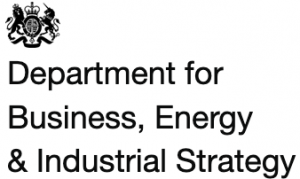British Academy Policy Insight Case Studies

The British Academy is inviting proposals for policy-focused research projects which will provide evidence and case studies that enable policy lessons and insight to be drawn out in two areas linked to our policy programmes: 'Technology and inequality'; and 'Environmental sustainability and place'. We are seeking case studies that draw from scholarship and evidence from the humanities, social sciences, and the arts (the SHAPE subjects) to highlight clear and practical lessons for policymakers at the central, regional and/or local level in relation to these two policy areas. We welcome and actively encourage interdisciplinary approaches to case study analysis.
- Funding status: Open for applications
- Career stage: Early-career, Established researcher, Mid-career, Postdoctoral or equivalent research, Senior researcher
Funded by the UK’s Department for Business, Energy and Industrial Strategy (BEIS).
The British Academy is inviting proposals for policy-focused research projects to support two of our public policy programmes; Technology and Inequality, and Environmental Sustainability and Place.
Our programme of work on Technology and Inequality will help to improve our understanding of how to ensure technologies deliver public good and help to reduce inequalities, not exacerbate them. This work was prompted by a request from the Government Office for Science and aims to improve our understanding of how government can play a key role in supporting access to, uptake of, and investment in technologies that can be critical to delivering broad public objectives, in a way that ensures inequalities do not become entrenched.
Our work on Environmental Sustainability and Place seeks to explore environmental sustainability through the lens of place and place-sensitive policy, and examines how visible different places, and the people and cultures within them, are to decision makers when they make decisions about the environment. This programme builds on the evidence from the Academy’s previous programme of work on Where We Live Now.
Projects funded under this scheme will help provide critical evidence of how evidence-based interventions are contributing to improved policy development across each of these areas.
Scope of the call
Projects should specify which of the two policy areas their case study work will address:
- Technology and Inequality, or
- Environmental Sustainability and Place.
We expect most proposals to engage with only one of these areas. However, where projects will provide policy insight into both areas, applicants should clearly explain how they will do so in their proposal.
We suggest that in either of the two policy areas, policy insights should be considered along one or more of the following the dimensions: place (physical and social context, locality), scale (individual, community, regional, national) and time (past, present, future; short-, medium-, and long-term). The British Academy previously used these dimensions within its report Shaping the COVID Decade.
Projects should apply the cross-cutting dimensions suggested above to draw out practical insights from their research findings and case studies. Projects should explain and justify to what extent insights can be generalised to other UK policy contexts, and where possible synthesise insights within a coherent framework to support future evidence-based policy development.
For more details about the two policy areas and the scope of this call for research, please see the scheme notes.
Eligibility requirements
The lead applicant must be a researcher in a discipline within the humanities or social sciences and must be either based at an eligible UK university or research institute or an independent researcher. The lead applicant must be of postdoctoral status or above (or have equivalent research experience). The lead applicant must be based in the UK and a co-applicant can be based elsewhere.
Projects can involve co-applicants and other participants. No individual may be a co-applicant on more than two projects under this call (nor may a PI be additionally a co-applicant on more than one other project).
For more details about the programme and the eligibility requirements, please see the scheme notes.
Value and duration
We expect to make six to eight awards of up to £25,000 each (up to four awards in each of the policy areas). Awards will start in March 2023 for a duration of six months.
Funding can be used to support research assistance; travel, fieldwork and related expenses; and networking costs.
Projects must begin in March 2023.
The timetable for deliverables will be agreed upon by successful applicants, and awardees will be required to engage closely and regularly with the British Academy throughout the award duration.
Application process
Applications must be submitted online using the British Academy's Grant Management System (GMS), Flexi-Grant®.
The deadline for submissions and UK institutional approval is on 1 February 2023, 17:00 GMT.
Please direct any queries to policy@thebritishacademy.ac.uk.

